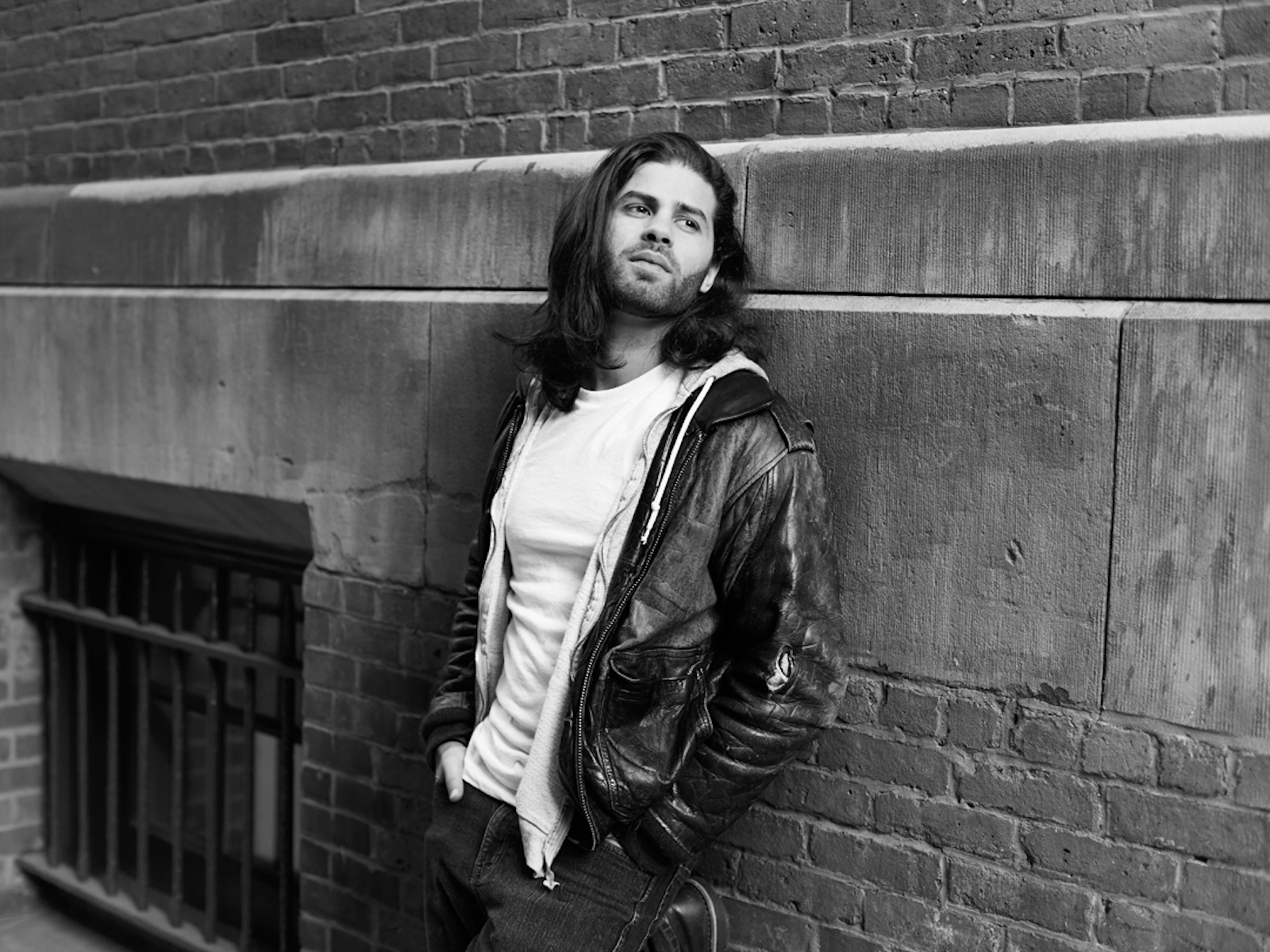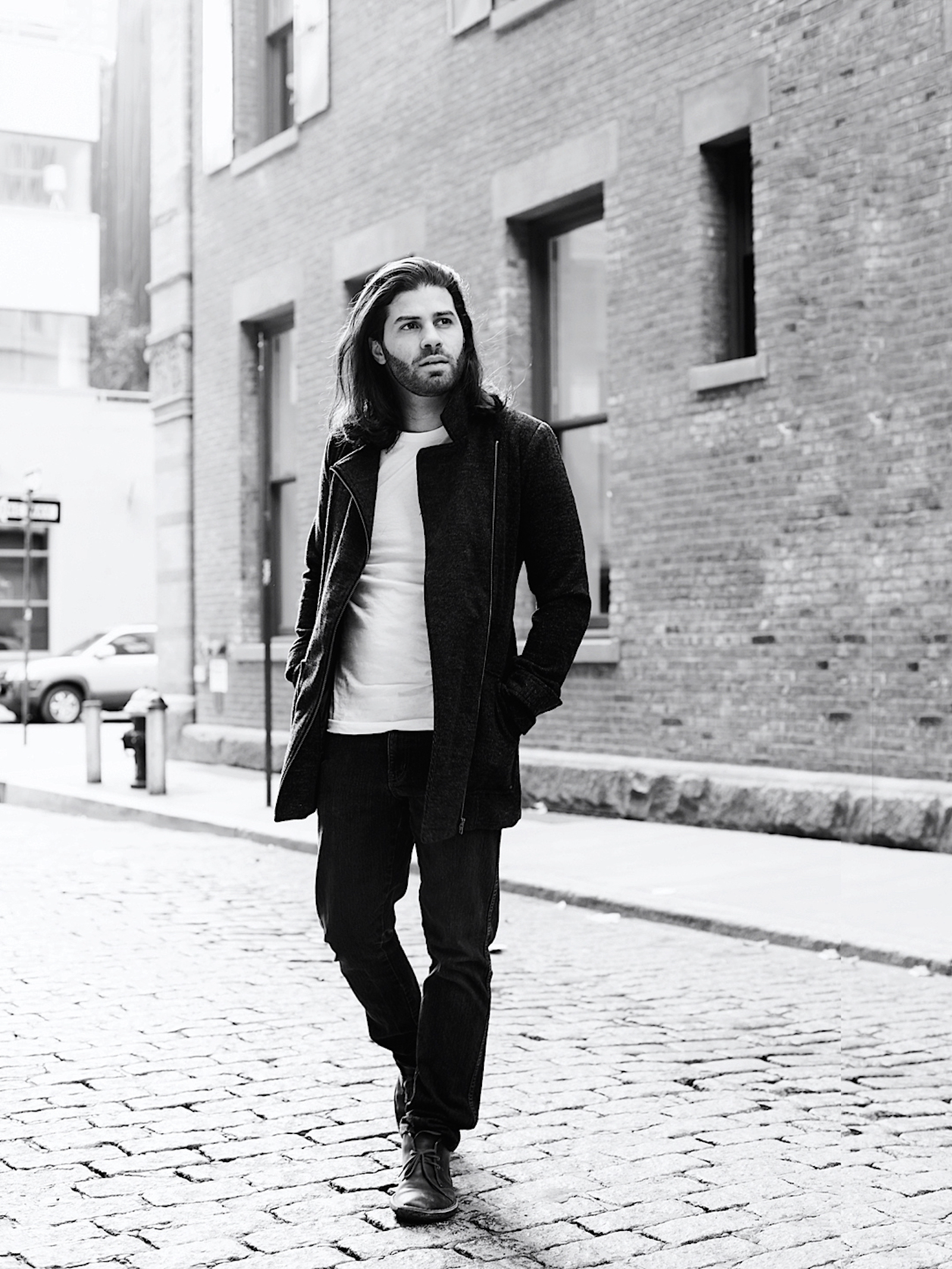 New Jersey rock singer Chris Deletto is bringing 90s era grunge back. Although the artist got his start playing guitar with hip hop artists Machine Gun Kelly, Meek Mill, and Ty Dolla $ign he is ready to venture out on his own, echoing the voices and style of great late Chris Cornell, Scott Weiland, and Kurt Cobain.
New Jersey rock singer Chris Deletto is bringing 90s era grunge back. Although the artist got his start playing guitar with hip hop artists Machine Gun Kelly, Meek Mill, and Ty Dolla $ign he is ready to venture out on his own, echoing the voices and style of great late Chris Cornell, Scott Weiland, and Kurt Cobain.
With the intense song “All We Are”, which deals with depression and suicide, the singer wants people to speak up if they are suffering and get the proper treatment.
Ladygunn’s Robert Frezza sat down with Deletto to speak on the topics of depression, suicide, and if his style of music will ever make a resurgence in today’s dominant pop and hip hop scene.
It seems like depression and suicide are the common theme in “All We Are.” Did you have experiences with both interpersonally/and or personally?
“I definitely dealt with both depression and suicide on an interpersonal level and somewhat personally. The sad truth about depression and suicide is how close to home it is for most people. Everyone has a story that ignites a sense of deep sadness, the important part is, how are you coping in those moments. This is where I can say I am extremely lucky, and why my story evolved into something different. It can sometimes be the cliché story of a broken home, with a few extreme moments thrown in the mix. However, the way it was handled was different. I had a close group of friends with this natural ability to really connect with each other. I felt so supported and so safe around them. My dark times were definitely dark, and sometimes things would slip for me, but I always had my safety net.”
“I was very combative and resistant to professional treatment, until I found the right person to help me. This is so important, and partly the reason why my story is a typical story never told. I never got to a dangerous point where I even came close to killing myself. I think everyone wrestles with the idea of suicide at some point, however, if you have a solid mental foundation with support, that thought becomes a fleeting one. I was in a dangerous mental state, but I always had serious support from friends, and more importantly a different understanding of healing through professional treatment. I have been in a professional treatment setting with people who tried to kill themselves, or currently wanted to kill themselves, and gained so much insight from those moments. I’ve learned that people in crisis just want to feel better, and it starts by having a conversation. It may be difficult and uncomfortable, but educating ourselves on how to have that conversation can change someone’s life. It did for me. I’m hoping to redirect that feeling for some people, and allow more people to relate and feel supported enough to speak up.”
“Only half of Americans that experience depression receive treatment” is the quote you began the video with. Why start the video with this particular quote?
“This quote is so important because it sets the tone for the whole video. It immediately shows the imbalance there is in our society, and raises the question as to why the percentage is so low. I think this is pretty eye-opening because not many people stop to think about that number. Usually when we see someone upset, we might offer a quick pick me up or simply ask “is everything okay” and stop there. We sometimes distance ourselves from making it our job to ensure that person receives the proper treatment. The whole idea around this video is centered on changing that percentage and changing our perspective. I also wanted to make a point to start the video with a fact so the viewers felt more connected on a professional level as well as a passionate level. If I was going to take such a strong stance on this, it couldn’t just all come from a place of passion, it also needed to be researched and talked about properly. I almost wanted to draw people in on more of a down note to leave more room for a higher resolution at the end. Proper treatment has an outstanding success rate of 80-90%, and we can all come together to help research, understand, and help raise the amount of people receiving proper treatment.”
The video plays out like a movie; it is very cinematic. Was that your goal when thinking of the treatment?
“I had many concepts for this video, and toyed around with many different stories, but I always knew I wanted to go for a cinematic approach. No matter what the story was, it was always meant to be something deep enough to get a conversation going. I always hoped to inspire people to tell their story, and help others be more aware and understanding when someone was in crisis. It wasn’t always going to be a full story like this, for the longest time I wanted to create a sort of a montage surrounding 4-5 mini stories. However, I couldn’t get past the idea that if I really wanted this to be impactful and hit home, I should pull from the place I know best, my own experiences. This story was inspired by situations and feelings from when I was around that age. I think that helped me create something real and reach my goal of raising awareness and starting a conversation.”
Your voice echoes that of the great 90s grunge era. (Chris Cornell, Scott Weiland, etc.) Did you ever receive vocal training? Do you consider those vocalists influences on you?
“Well first of all I am extremely flattered, and to be mentioned among the greats like that is hard to take in. So right off the bat, it’s fair to say they might play a small part as to why I sing like I do. I took vocal lessons for a little while when I was 20. It wasn’t for me to become trained, or learn technique. The main reason I did it was because I never sang in front of anyone before and I didn’t know if I could. It was my weird way of finding out if I could even sing in key. I mostly used broadway songs from “Les Miserables” and “Sweeny Todd”, but never got into singing the way I wanted. I just thought that’s what you had to do first. What I really wanted was to sound like all the icons from the 90s grunge era. I heard Kurt Cobain’s voice when I was 12, and the way I listen to music immediately changed. It wasn’t just singing notes, it was exhaling every ounce of pure emotion and releasing something so raw and real. That was so new to me, but felt so familiar. I never aimed at sounding like them, but I always aimed at singing like that.”
Do you think your music will resonate with the young generation today?
“That is always such a difficult call. My music comes from a rebellious outlook stemming from what I saw growing up, which is very relatable in that sense. However, I remember the first time I heard the hip-hop artist Macklemore and my immediate reaction was, “this is pretty good, too bad more people won’t relate to this”. Fast forward to “Thrift Shop” and his album “The Heist” and that’s when I gave up my career as a music analyst.”
When can we expect a full-length album from you?
“So I keep saying soon, and at this point it is starting to sound like a cruel joke to everyone waiting. With that being said, soon? However, this time I can assure that it will be very soon. Still soon though.”
Do you think your style of rock music will make a resurgence?
“I think making a comeback in today’s time is a little more difficult because you have such a vastly open market, and the ability to find any style of music immediately. I will just be happy to go on tour and have someone random point at me and go, “not bad old man, not bad at all”. Then I can hang my hat, and head home for dinner. I don’t really know what any of that last stuff means, but in short, no. But then again, look at my hopes for Macklemore. And with that, if you are reading this Mack buddy, I would like to just go on record and say, sorry I ever doubted you.”

CONNECT WITH DELETTO
FACEBOOK // TWITTER // INSTAGRAM
story / Robert Frezza
photos / Nick Paton
